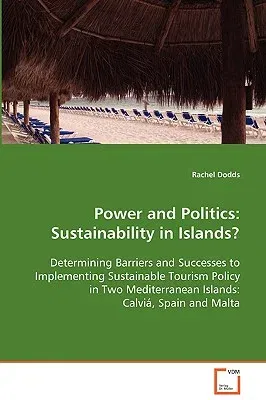Rachel Dodds
(Author)Power and Politics: Sustainability in Islands? Determining Barriers and Successes to Implementing Sustainable Tourism Policy in Two MeditePaperback, 6 November 2008

Qty
1
Turbo
Ships in 2 - 3 days
In Stock
Free Delivery
Cash on Delivery
15 Days
Free Returns
Secure Checkout
Print Length
284 pages
Language
English
Publisher
VDM Verlag
Date Published
6 Nov 2008
ISBN-10
3836498537
ISBN-13
9783836498531
Description
Product Details
Author:
Book Format:
Paperback
Country of Origin:
US
Date Published:
6 November 2008
Dimensions:
22.86 x
15.24 x
1.52 cm
ISBN-10:
3836498537
ISBN-13:
9783836498531
Language:
English
Location:
Saarbrucken
Pages:
284
Publisher:
Weight:
381.02 gm

